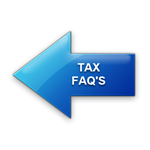What tips should I know for renting out my home?
Rental Properties can be a great source of income for retirement. Not only can a rental generate income, but it also has an asset growth potential (the home!). In order to be successful with your rental property, we've prepared several tips that you won't want to miss.....
1. Keep Good Tax Records
This tip is one most people miss. You absolutely must keep your rental property separate from your personal finances. This means having a separate bank account for your rental. Deposit all rental income into that account; and have separate checks and debit/credit cards solely for rental expenses. Did we mention you should keep rental separate?!! Do NOT commingle funds. It'll make life much easier come tax time, or in the event of an IRS audit! Click here for a "Rental Property Tax Accounting Checklist" to help with your accounting process.
2. Consider A Property Manager
One of the major complaints with owning rental property is the hassle. You must respond to tenant inquiries at all times of the day. You have to deal with finding new renters when your property goes vacant. Hiring a property manager can lighten the load with many of the hassles that come along with renting out your home. Just know it will generally cost you around 10% of your monthly rent. You must decide whether to maximize your profits, or keep your sanity!
3. Be Wise In Selecting Tenants
Conventional wisdom says to look for tenants with the absolute best credit, solid income, and a spotless rental history. While these are key factors, they're not necessarily the most important. You'll want tenants who feel fortunate to be selected to rent your property. Steer clear of those who feel entitled. These are the people who make demands and requests before you even decide to accept them as tenants. Sometimes it is better to take tenants with lesser qualifications, if you feel they won’t be a pain in your neck! Look for tenants with good character!
4. Don't Get Greedy - Take Less Rent
Renting your property for slightly less than market rent gives you more prospective tenants to choose from on the front-end; which means you'll be less likely to have the home vacant for several months. You can also use the low rent as a trade-off agreement with your tenants to not hassle you for minor repairs. With less hassle, maybe you won't need the property manager mentioned previously.
5. Be Sure To Have Proper Insurance
While you no longer occupy the property and need to protect your belongings, it's still critical to carry adequate property & liability coverage. You may want to notify your tenants that it would be advisable for them to acquire "renter's insurance" to cover their personal belongings as your insurance does not cover those items on their behalf.
6. Account For Depreciation
Residential real estate that is rented to tenants must be depreciated over its useful life (27.5 years, as of 2016). This means it’s important to document the land value vs. building value of the property at the time it becomes a rental. The building value is the portion that is depreciated and reduces your basis for figuring gain or loss on a later sale or exchange of the property.
For example, a home might have a land value of $250,000 and a building value of $150,000 at the time it becomes a rental. The $150,000 building value is then used as the basis for depreciation and creates a yearly deduction. That amount is the basis divided by 27.5 years if using the straight-line depreciation method (most common). So the yearly deduction (for all years other than prorated 1st and last years) in this example would be $5,454 ($150,000 divided by 27.5).
Then the total depreciation from the time the property became a rental until it is sold (or exchanged) is later used to adjust the cost basis in the property for calculating capital gains. So in essence, the depreciation deductions taken over the life of the rental property can be recaptured when the property is sold. This is the case whether or not you chose to actually take the depreciation deductions along the way.
Bonus Tip: If you're considering converting your primary home into a rental, we'd suggest reading this article first.
And There's More!
You may want to learn about Passive Loss Carryovers, as they can affect the taxation of your rental. Click here for more detail!
Contact us if you have any further questions, we're here to help!
© 2024 Peshke Financial Inc., all rights reserved. NMLS #2244878. DRE #02210589. "Making Finances Simple. Changing Lives." is a registered trademark with USPTO. Material contained in this website is for informational purposes only and is not meant to be construed as direct financial advice for your specific situation. It is recommended that you consult with your own advisors for any personalized financial guidance. Since we’re not licensed attorneys, we cannot provide legal advice. As such, any info contained in this website should not be construed as direct legal advice. Individual Licensure (see profiles) - click here. Send Docs Securely - click here. Privacy Policy - click here.


